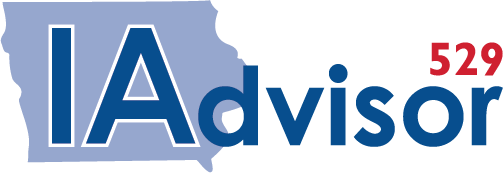The IAdvisor 529 Plan offer multiple tax incentives. These include state tax deductions, tax deferral of earnings, tax-free withdrawals for qualified higher education expenses, and generous estate and gift tax benefits.
Federal Tax Advantages
- Earnings in your account grow deferred from federal and state income taxes
- Withdrawals for qualified educational expenses at eligible higher education institutions are also free from federal and Iowa state income taxes for Iowa taxpayers1 who are participants
Estate and Gift Tax Benefits
- 529 plans are a great way for grandparents and other family members to create an educational legacy for a child while reducing the value of their taxable estate
- You may contribute as much as $19,000 per beneficiary each year ($38,000 if married, filing jointly) without incurring gift tax consequences
- As an alternative, you can elect to contribute up to $95,000 in a single year ($190,000 if married, filing jointly) and treat it as if it was made over a five-year period2
State Tax Incentives for Iowa Residents
- Contributions of up to $6,100 per beneficiary per Iowa taxpayer who is a participant are deductible from Iowa taxable income in 2026 (adjusted annually for inflation)3. For example, married Iowa participants who contribute to accounts on behalf of their two children can deduct up to $24,400 (4 x $6,100). Please note that for 2025 tax purposes, the deduction limit was $5,800.
- Effective for tax years beginning on or after January 1, 2015, Iowa taxpayers may now elect to treat contributions to their IAdvisor 529 Plan account made up through the deadline (excluding extensions) for filing an individual Iowa state income tax return (generally April 30). Qualifying contributions are deducted on line 24, item "g." of your Iowa income tax return.
1 Eligible expenses must be related to enrollment or attendance at an eligible educational institution as defined by section 529 of the Internal Revenue Code. Eligible expenses may include but are not limited to tuition and fees, books, supplies, equipment and certain room and board. An eligible educational institution is any college, university, vocational school, or other post secondary educational institution eligible to participate in a student aid program administered by the U.S. Department of Education. Non-qualified withdrawals may be subject to federal and state taxes and an additional federal 10% tax.
2 In the event the contributor does not survive the five-year period, a pro-rated amount will revert back to the contributor’s taxable estate.
3 If withdrawals are not qualified, the deductions must be added back to Iowa taxable income.

